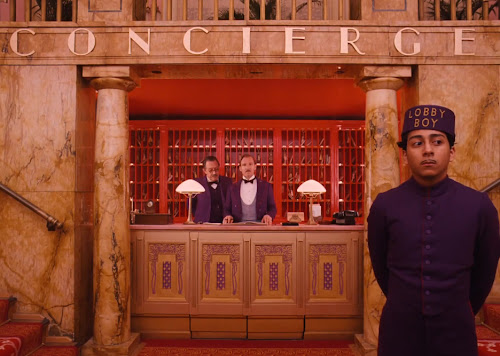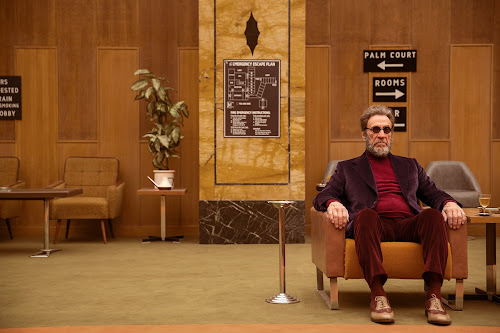Before and during the Winter Olympics, there were concerns regarding the human rights of LGBT athletes and the compatibility of Principle 6 of the Olympic Charter with Russia's "gay propaganda" laws which e.g. restrict freedom of expression (
via).

In December 2013, Viviane Reding, EU Commissioner for Justice, Citizenship and Fundamental Rights joined German president Gauck who boycotted the games and tweeted:
"I will certainly not go to Sochi as long as minorities are treated the way they are under the current Russian legislation." (
via)
US-president Obama's message was rather clear. He appointed openly gay athletes to the Olympic delegation such as tennis player Billie Jean King, ice hockey Olympian Caitlin Cahow and figure skating Olympic gold medalist Brian Boitano who came out a few days after his appointment (
via).
Australian snowboarder Belle Brockhoff came out in response to the Russian laws:
"I was hoping by coming out in response to these laws it would inspire a lot of other people who are in the closet to come out regardless of what society thinks and what laws are in place" (
via). Shortly before the Olympics started, Finnish swimmer Ari-Pekka Liukkonen came out:
"I wanted to start a broader discussion in connection with Sochi, because it's sad that the legislation in Russia restricts the human rights of young people and others." (
via). Canadian speed skater Anastasia Bucsis had her coming out when she was qualifying for the Sochi Olympics (
via), Dutch snowboarder Cheryl Maas raised her "rainbow gloves" to a camera after having competed in Sochi (
via), a few participating athletes had come out years before, tennis legend Martina Navratilova asked the International Olympic Committee to stand up for their athletes (
via).
Cher turned down the offer to perform at the Winter Olympics:
"I immediately said no. I want to know why all of this gay hate just exploded over there." (
via)

In January 2014, the Principle Six Campaign (P6) was launched. P6 refers to the sixth principle of the Olympic Charter which says that any kind of discrimination is incompatible with belonging to the Olympic Movement. The two organisations
All Out and
Athlete Ally created the P6 campaign, the gear was produced and distributed by
American Apparel. Proceeds from the P6 merchandise directly went to LGBT advocacy groups in Russia. The campaign was signed by a great many Olympians and professional athletes (
via).
The Canadian Institue of Diversity and Inclusion (CIDI) launched an ad for the Winter Olympics to show their support especially for the athletes in Sochi. CIDI also invited the public to show support during the games by changing the facebook profile picture to an equals symbol with two lugers (
via).
The day the Olympics started, Google published part of the Olympic Charter under its search bar:
"The practice of sport is a human right. Every individual must have the possibility of practicing sport, without discrimination of any kind and in the Olympic spirit, which requires mutual understanding with a spirit of friendship, solidarity and fair play."
Channel 4 changed its logo into a rainbow logo for a day to back LGBT rights (
via) and created the 90-second clip "Gay Mountain" wishing "good luck to everyone out in Sochi". It was officially aired on the day of the opening ceremonies of the Winter Olympics and received enormous positive response.
"This is a typcially Channel 4 way of celebrating the start of the Winter Games and showing our support to all of the athletes out in Sochi, gay or straight." (
via). And it is one of the many steps Channel 4 takes to promote responsible behaviour and diversity (
via). The British television broadcaster is a founder of the Creative Diversity Network and plays "a pioneering role in bringing transgender stories to prime time and humanising the challenged and discrimination faced" (
via).
AT&T, US Olympic Committee sponsor, was the first major US corporation to support LGBT equality and to condemn Russia's laws (
via). The cosmetics chain
Lush stood up for LGBT rights in the Winter Olympics stating that they are human rights. When the Olympics approached, shops around the world ran the Valentine's campaign "We believe in Love" (
via). The Scottish brewery BrewDog created a type of beer called "Hello, My Name is Vladimir" with Warhol-style Putin wearing make-up and the sarcastic label "Not for gays". 50% of the profits went to LGBT charities (
via). Companies sponsoring the Winter Olympics such as Coca Cola, McDonald's, Visa, and Procter & Gamble were warned by human rights activists and found themselves in a controversial situation that was difficult to handle (
via).
Perhaps it is too early for a thorough analysis but in the past weeks it could certainly be observed that a great many people, organisations and companies showed solidarity and took a clear stance. And somehow it seems that the "propaganda laws" partly backfired and Sochi ironically became the "Gay Olympics"(
via)...
- - - - - - -
photographs of Cher
via and
via, video "Gay Mountain", Channel4






















































.jpg)